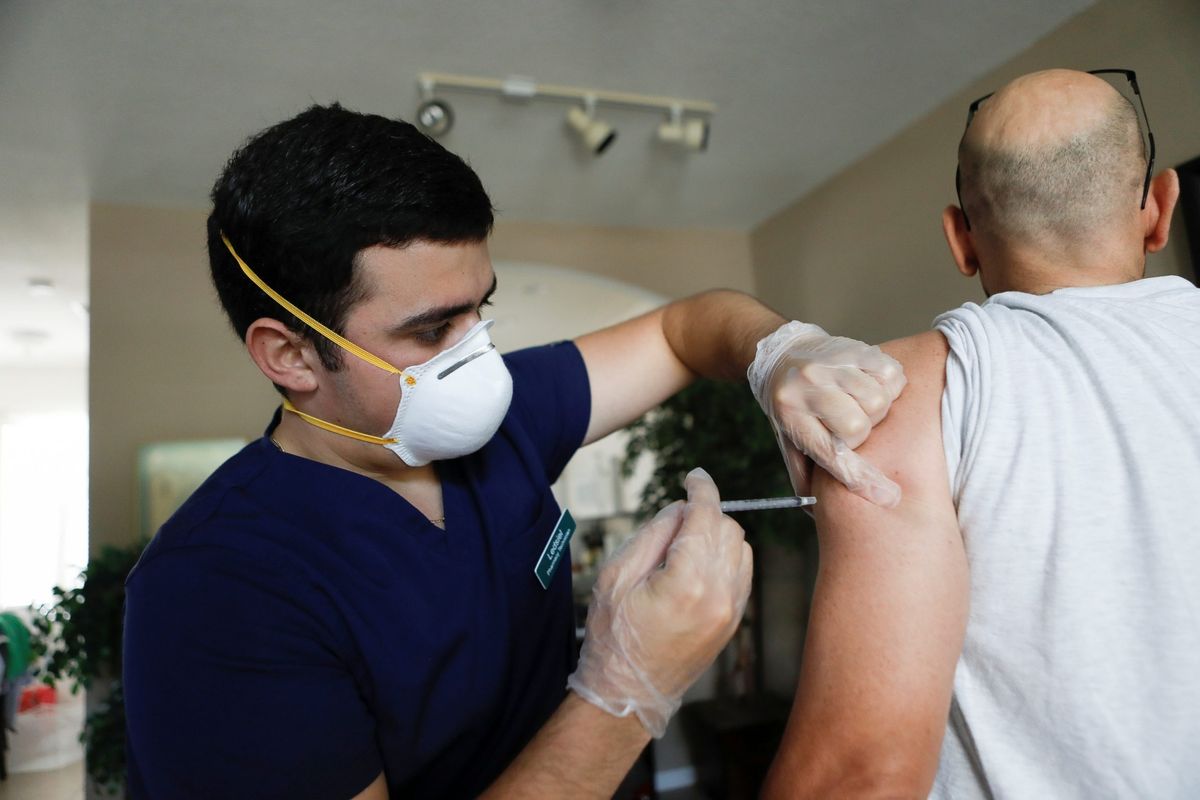How are countries handling COVID-19 vaccine requirements?

A few minutes every morning is all you need.
Stay up to date on the world's Headlines and Human Stories. It's fun, it's factual, it's fluff-free.
Chances are these policies will evolve. It isn’t likely (at least we hope), that in five years time we will need to prove we’ve been vaccinated in order to go to a restaurant or see a movie.
Are there any countries that have a full vaccine mandate?
- Yep, some countries have introduced straight-up vaccine requirements where everyone is expected to get the vaccine.
- Countries doing this typically have some exemptions though, this includes for individuals with medical conditions that make vaccines unsafe. But generally speaking, everyone who is eligible to get a vaccine is supposed to.
- One country doing this is Turkmenistan, which announced in early July that vaccinations would be mandatory for anyone 18 years old and over.
- Another country giving it a shot is Indonesia, where the federal government created a law that fines people who refuse to get vaccinated.
- The fines are still up to the local governments, but Jakarta, the capital city, is threatening fines up to 5 million rupiah (around US$357) for anyone refusing to get vaccinated.
What about more nuanced vaccine requirements for the general public?
- Some places aren’t necessarily requiring the general public to be vaccinated, but rather to impose vaccine requirements for citizens that want to do certain things, like go to restaurants or events.
- In England, a version of this has been put in place. Patrons at nightclubs and other venues with large crowds are required to show proof of vaccination starting at the end of September.
- France has also put in place similar requirements, implementing a health pass that shows proof of vaccination. This proof is required in all sorts of places, including restaurants, bars, hospitals and trains.
- But, implementing it has proved a little bit challenging, with an estimated 200,000 people protesting it nationwide, shouting things like “Freedom!” and “No to the health pass!”
- Similar requirements in certain Chinese cities have been met with pushback with citizens on social media calling the requirements a form of discrimination against the unvaccinated.
What about for specific jobs?
- The strategy of requiring certain workers get vaccinated has been a popular one, with countries like Australia, Russia, Greece and Saudi Arabia using the strategy.
- The policies obviously vary a little from country to country, but the gist of it is that health workers, along with people working close to people infected with COVID-19 (such as people working in quarantine hotels) or at risk populations (such as nursing home workers), are required to get vaccinated.
- A lot of countries are also making it so that people who work for the government are required to get the vaccine.
- This is even being done in the United States, with President Joe Biden announcing at the end of July that all federal employees and contractors are required to be fully vaccinated or that they need to take tests regularly before returning to in-person work.
- For the US, another big question has been if private companies, particularly private hospitals, can require employees to get the vaccine. A federal judge in Texas held that these requirements are legal, which prompted other hospitals to follow suit.
- While it isn’t as clear if such requirements will be implemented for nonmedical companies. plenty of businesses are requiring that employees either get vaccinated or work from home.
Could these requirements be a bad thing?
- In some cases, yes, but there’s also a balance that has to be met between requirements and freedom of choice.
- Health officials worry that mandatory vaccine requirements may undermine trust in the vaccine, making people less likely to get vaccinated.
- Even the World Health Organization (WHO) doesn’t recommend the strategy of full vaccine requirements, with its top emergency expert Mike Ryan, saying that, “We are much better served to present people with the data, present people with the benefits and let people make up their own minds, within reason.”
- And, in a WHO policy brief, it pointed out that one of the major considerations to make with mandatory vaccinations is that it should be “considered only if it is necessary for, and proportionate to, the achievement of an important public health goal.”
What’s next?
- Chances are these policies will evolve. It isn’t likely (at least we hope), that in five years time we will need to prove we’ve been vaccinated in order to go to a restaurant or see a movie.
- And, at least in the US, some people are just waiting on the courts to rule on exactly who has the authority to mandate vaccines, and who doesn’t.
- The other piece of the puzzle, though, that will likely become a bigger deal as international travel rebounds, is how to handle international vaccine requirements.
- The question of transferring documents from one country to another, from one language to another, will be an important one to answer.
- But, for now, countries seem to be in the mindset of vaccinating their own first and dealing with visitors later.
Have a tip or story? Get in touch with our reporters at tips@themilsource.com




Comments ()